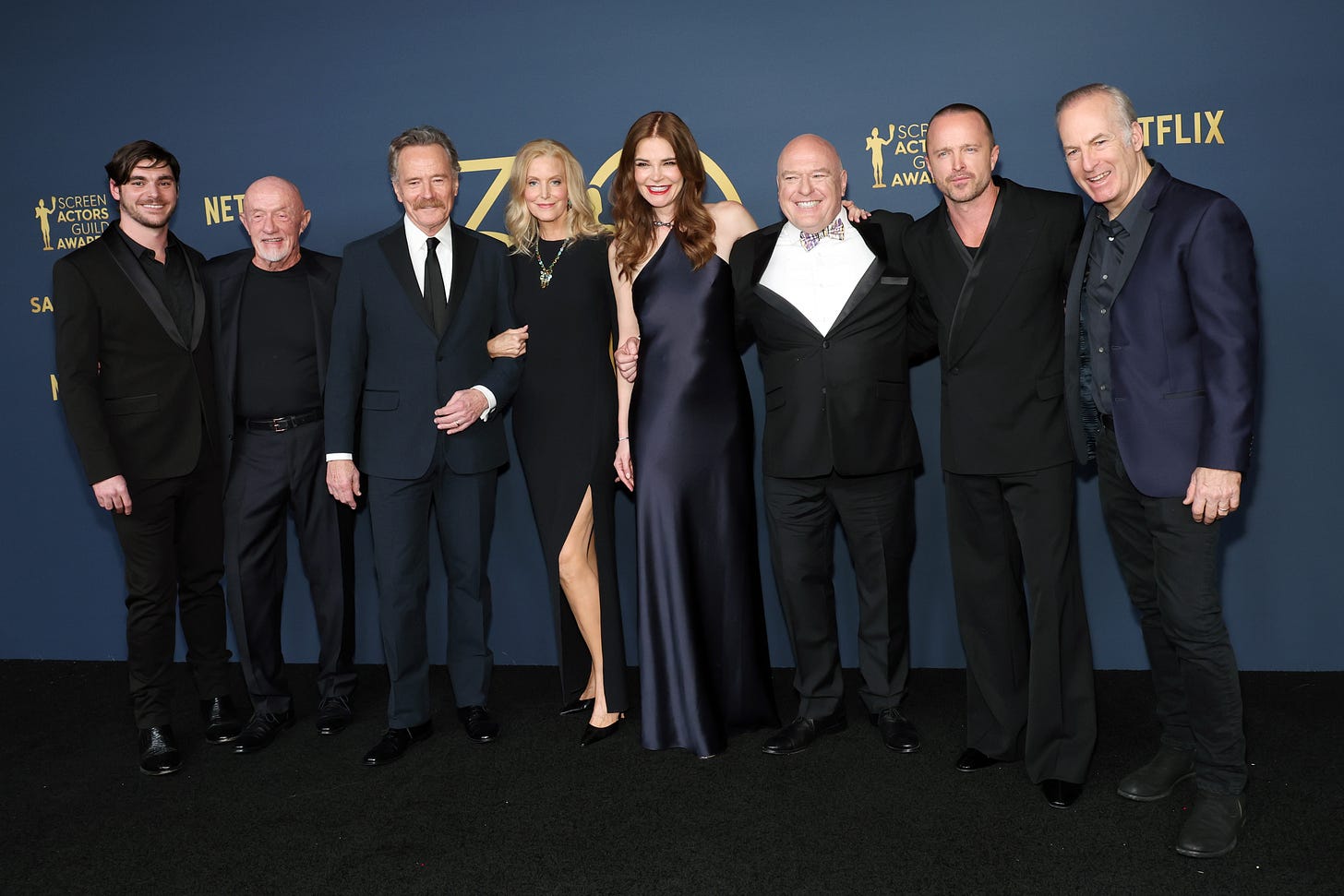Watching Breaking Bad with my Zoomer Daughter
The show’s greatness doesn’t speak to women the same way it speaks to men—and that demonstrates its limits as art

In hindsight, we should have suspected something big and destabilizing was coming down the cultural-political pike when a sizable portion of the overwhelmingly male audience of the television show Breaking Bad (which ran through five seasons from 2008 to 2013) directed a firehose of fury at the character of Skyler White and the actress who played her, Anna Gunn.
For those who haven’t seen the show, it tells the story of a high school chemistry teacher and all-around beta male named Walter White, who responds to what he assumes is a fatal lung cancer diagnosis by enacting a Nietzschean fantasy of self-overcoming and unleashed will to power by turning himself into a drug kingpin at the center of an international methamphetamine racket. As most people who’ve seen the show will attest, it’s one of the most tightly scripted and best acted TV series in history. But, like The Sopranos before it, the show also pushes the limits of making its protagonist an anti-hero. Breaking Bad’s creator, Vince Gilligan, has said that he wanted the audience to be lured into empathizing with Walt and then be confronted with the nagging question of when they would break from him as he breaks bad and then breaks ever worse as the show unfolds.
The deeply troubling fact is that lots of (again, overwhelmingly male) viewers stuck with Walt all the way to the end, expressing fierce loyalty to the character even as he crossed every conceivable moral line and in the process ruined the lives of everyone around him, and equally fierce rage at Skyler, Walt’s wife and the show’s only major female character. For many men who became deeply invested in the show and its masculinist fantasy, Skyler was Breaking Bad’s primary antagonist, forever undermining Walt, demonstrating disloyalty, benefitting from the fortune he acquires while judging him harshly, and just plain obstructing his empire-building ambitions when he should have been free to do whatever he wanted.
I remember reading, long before I watched the show, about the abuse directed at the character and the actress who played her. I found it perplexing and disturbing, but I couldn’t really assess it until I watched the show for myself, which I only did several years later, deep into the Trump era. I didn’t know how to interpret the reaction as anything other than an expression of misogynistic rage by people who longed to live in a world dominated by immensely powerful men who unapologetically make and take what they will, while women and male weaklings suffer what they must and are expected to gaze upward in gratitude and admiration to the Übermenschen perched high above them.
Longing to be the Toughest Badass Around
I bring all of this up because this summer I’m watching Breaking Bad with my Gen Z daughter. It’s my third time through the show but her first. And seeing it through her eyes, and listening to her talk about what she’s seeing and (mostly) enjoying, has been revealing to me. She likes the show a lot and often finds it gripping. But she also points out that it constructs a world completely dominated by men, and one in which the motor of dramatic action is powered entirely by the lead character’s longing to be the toughest badass around.
That just isn’t something my daughter can relate to.
Keep reading with a 7-day free trial
Subscribe to Notes from the Middleground to keep reading this post and get 7 days of free access to the full post archives.




